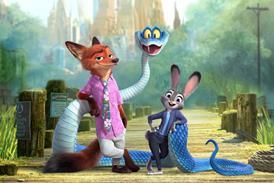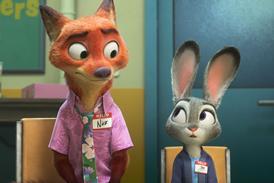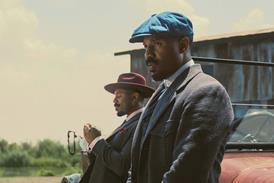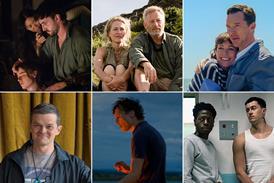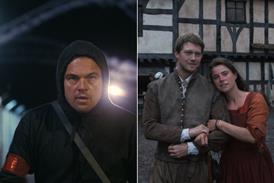Rick Ostermann adapts a popular novel by Jochen Rausch
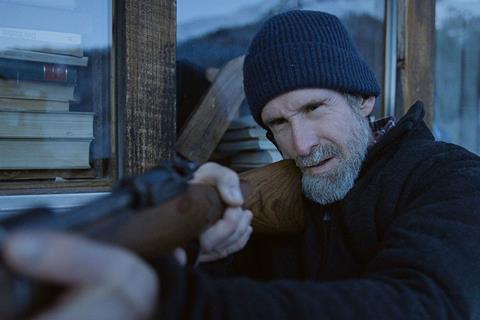
Dir. Rick Ostermann. Germany. 2017. 92 mins
The spectacular winterscape of the Tyrol region provides a suitably dramatic backdrop for a somewhat overstated story about a man’s inability to grieve the loss of his wife and son. Based on a novel by Jochen Rausch, Krieg weaves together two timelines – the past sees Arnold (Ulrich Matthes) and his wife (Barbara Auer) anxiously waiting for news from their son Chris (Samuel Schneider), a soldier serving in an unspecified Middle Eastern warzone. The present follows Arnold to the mountaintop hut where he has retreated following his double bereavement, his grief festering and mutating into a feud with a fellow loner.
In the journey from page to screen, we have been left with a few rather thankless characters
Contrived plotting and a few too many preposterously extreme actions on the part of this self-described pacifist repeatedly jolt the audience out of the film. The grandeur of the snow-laden mountain scenery notwithstanding, this is a story which is perhaps best suited to the small screen, although other festival bookings – the film arrives in Zurich having premiered in Venice – are possible.
In the journey from page to screen, we have been left with a few rather thankless characters. Prominent among these is the local policeman in the village near Arnold’s mountain hideaway. His main function is to foreshadow action and plant red herrings with pointed lines enquiring whether Arnold has found the rifle that the previous owner left behind (he has) and expressing the hope that Arnold’s hut doesn’t burn down.
Another slightly awkward character is the hate-filled village vet, a man almost comically ill-suited to his vocation. He advocates euthanizing Arnold’s wounded dog almost before Arnold has put the animal on the examining table. “It’s got blood poisoning,” he diagnoses, dismissively. But it’s important that the hound stays alive, for his injury – sustained from a bolt shot by a mystery man who had been squatting in Arnold’s hut – is what fuels Arnold’s angry vendetta against the stranger.
Meanwhile, in the flashbacks, the garden shed fills up with empty wine bottles as Arnold’s wife attempts to blot out the constant worry of having her only son deployed to war.
The initial provocation – the injured dog, the trashed hut – triggers a disproportionate response from Arnold, who torches the man’s tent and its contents; arms himself with a hunting knife and binoculars; and then chucks a petrol bomb at his new shelter. When the man, who, it is hinted, is the missing husband of gallery owner Anne (Jördis Triebel) responds in kind, Arnold seems surprised. “What do you want?” he yells, somewhat redundantly.
Part of the problem is that there isn’t enough of a contrast between Arnold in the pre-tragedy flashbacks (stoic, reserved) and Arnold in the post-tragedy present (stoic, reserved, with unbrushed hair) to persuade us that he is a man unhinged by repressed grief. A lachrymose score, supplemented with mournful Hank Williams and Seasick Steve tracks, doesn’t help matters. More effective is the heightened sound design. The groan of the snow, the creak of floorboards, the snap of a twig – all work together to create an oppressive sense of mounting threat. It takes a while to realise that the threat is as much of Arnold’s making as it is from the part of his faceless opponent.
Production company: Schiwago Film GmbH, WDR Westdeutscher Rundfunk Köln
International sales: info@schiwagofilm.de
Producers: Marcos Kantis, Martin Lehwald, Michal Pokorny
Screenplay: Hannah Hollinger
Cinematographer: Leah Striker
Editor: Christoph Wermke
Music: Stefan Will
Starring: Ulrich Matthes, Barbara Auer, Jördis Triebel, Lili Epply












